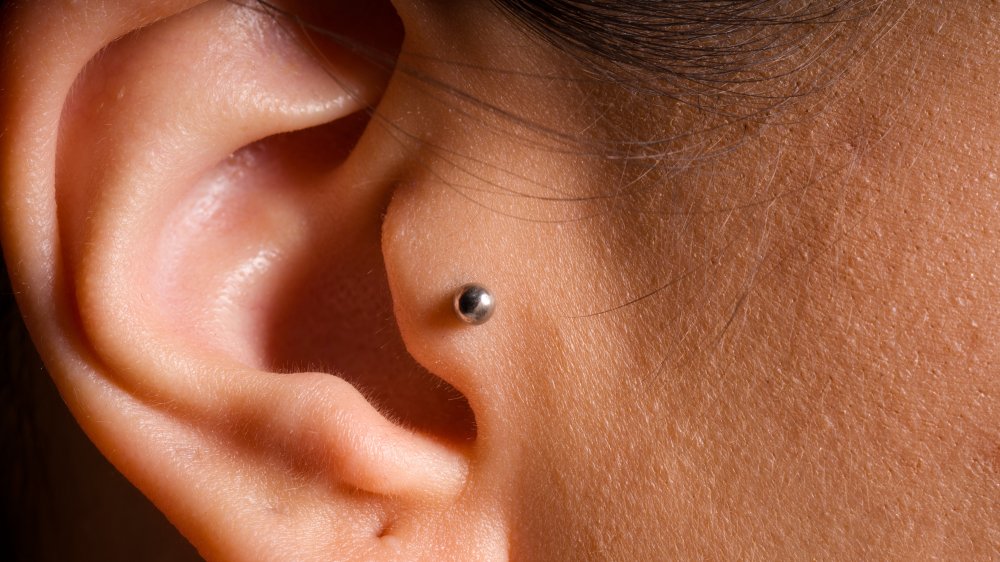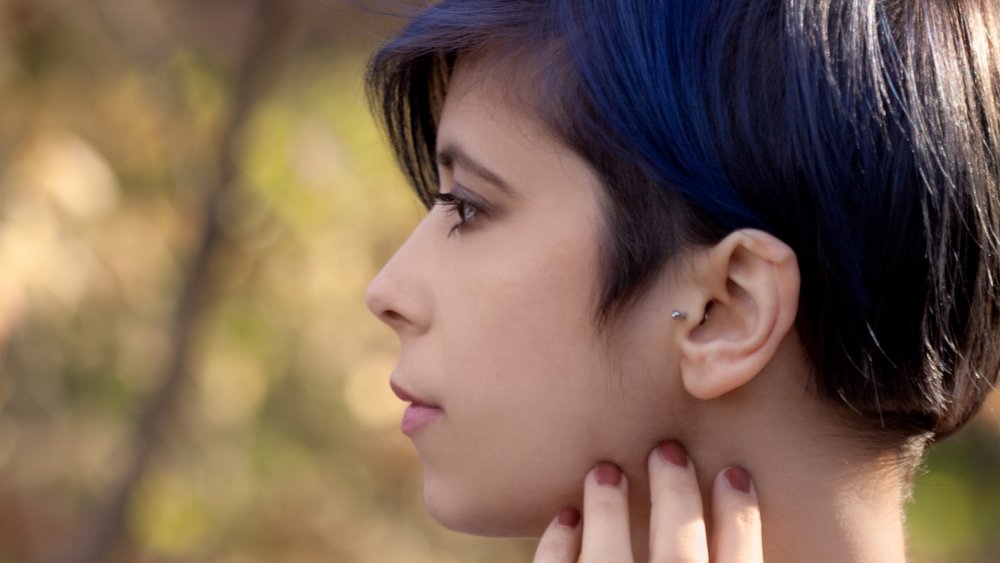What Is A Tragus Piercing And How Much Does It Really Hurt?
Like tattoos, ear piercings are becoming increasingly popular. If you don't have a piercing, you're likely to know someone with an ear piercing, lip piercing, nose piercing, or conch piercing — but you might not be familiar with the tragus piercing.
As expert piercer, Cassi Lopez of New York Adorned in New York City told Allure, "[It's] one of those piercings that have never really died down." Sophia Bush, Scarlett Johansson, Nicole Richie, and Rihanna are all fans, and for this reason alone, we want to know exactly want exactly what a tragus piercing is and how much it actually hurts.
Tragus piercing punctures hard cartilage, which can be painful.
The tragus is the small flat piece of cartilage that sits just in front of your ear, right in front of your ear lobe — some people call it an 'ear flap.' Tragus piercings are done with a needle, never a piercing gun, and are commonly adorned with a small stud or bar.
"Tragus piercings hurt no more than any other cartilage piercings," Adrian Castillo, a piercer at Los Angeles and Brooklyn-based studio 108, told Allure. He continues, "It's actually more pressure than pain, and it can be a little intimidating because you're piercing into the ear canal, so you can hear everything."
If you've had a piercing before, the pain is similar to any other cartilage area — minimal. However, it's important to note that pain affects people differently. If you have a low pain threshold, it's likely to hurt more than it would someone with a high pain threshold.
Healing time for tragus piercings can be up to six months, and like many other body piercings, aftercare is integral to avoid irritation or infection (which will definitely hurt and will require medical attention). "For the first two to three weeks, avoid sleeping on your side to prevent friction on the area," Castillo explained. If you have a new tragus piercing, keep it clean, don't fiddle with it, and ask your piercer if any questions about aftercare pop up while you're healing.

